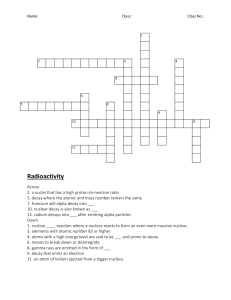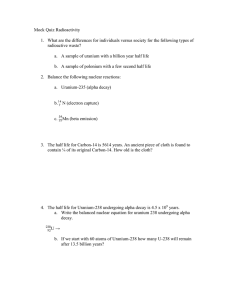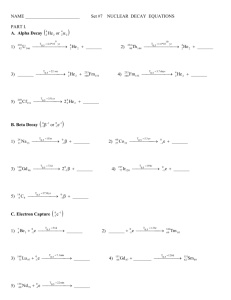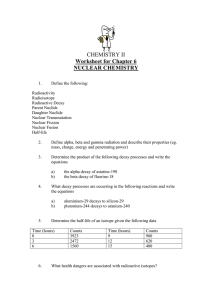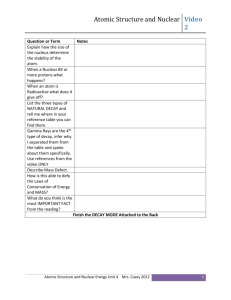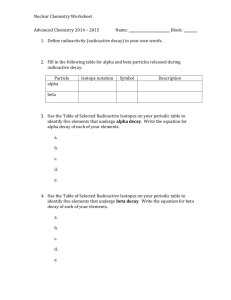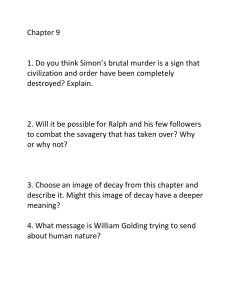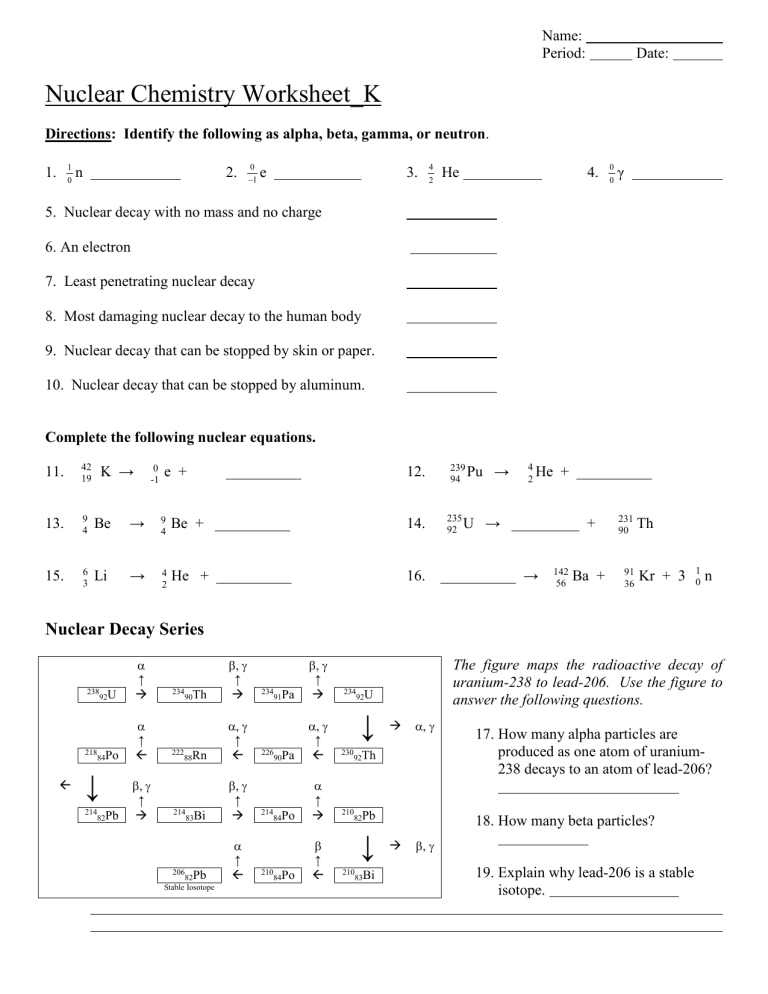
Name: Period: Date: Nuclear Chemistry Worksheet_K Directions: Identify the following as alpha, beta, gamma, or neutron. 1. 1 0 n 2. 0 1 e 3. 4 2 He 4. 0 0 γ 5. Nuclear decay with no mass and no charge 6. An electron 7. Least penetrating nuclear decay 8. Most damaging nuclear decay to the human body 9. Nuclear decay that can be stopped by skin or paper. 10. Nuclear decay that can be stopped by aluminum. Complete the following nuclear equations. K → 12. 11. 42 19 13. 9 4 Be → 9 4 Be + __________ 14. 15. 6 3 Li → 4 2 He + __________ 16. 0 -1 e + __________ 239 Pu 94 235 92 U → 4 He 2 + __________ → _________ + __________ → 142 56 Ba + 231 90 91 36 Th Kr + 3 1 0 n Nuclear Decay Series 92U ↑ 84Po ↑ 238 218 ↓ 214 82Pb ↑ 234 90Th ↑ 222 88Rn ↑ 214 83Bi 206 82Pb Stable Iosotope ↑ ↑ 234 91Pa ↑ 226 90Pa ↑ 214 84Po 210 84Po ↑ ↑ 234 92U ↓ 230 92Th 210 82Pb ↓ 210 83Bi The figure maps the radioactive decay of uranium-238 to lead-206. Use the figure to answer the following questions. 17. How many alpha particles are produced as one atom of uranium238 decays to an atom of lead-206? 18. How many beta particles? 19. Explain why lead-206 is a stable isotope. 20. When protactinium-229 goes through two alpha decays, francium-221 is formed. 21. Write the nuclear equation for the decay of Po-210 if it undergoes 2 consecutive alpha decay followed by a beta decay followed by another alpha decay. 22. The decay chain (or series) of uranium-238 is shown in the following figure. What is the final product in this decay series? 23. Using the figure to the right, list each type of decay that uranium-238 goes through to become lead-206. 24. Thorium-232 undergoes radioactive decay until a stable isotope is reached. Write the reactions for the decay of Th-238. There are eleven steps beginning with Alpha decay with each product becoming the reactant of the next decay. Circle the final Stable isotope. • Alpha: • Beta: • Beta: • Alpha: • Alpha: • Alpha: • Alpha: • Beta: • Beta: • Alpha: • Beta: ____________
